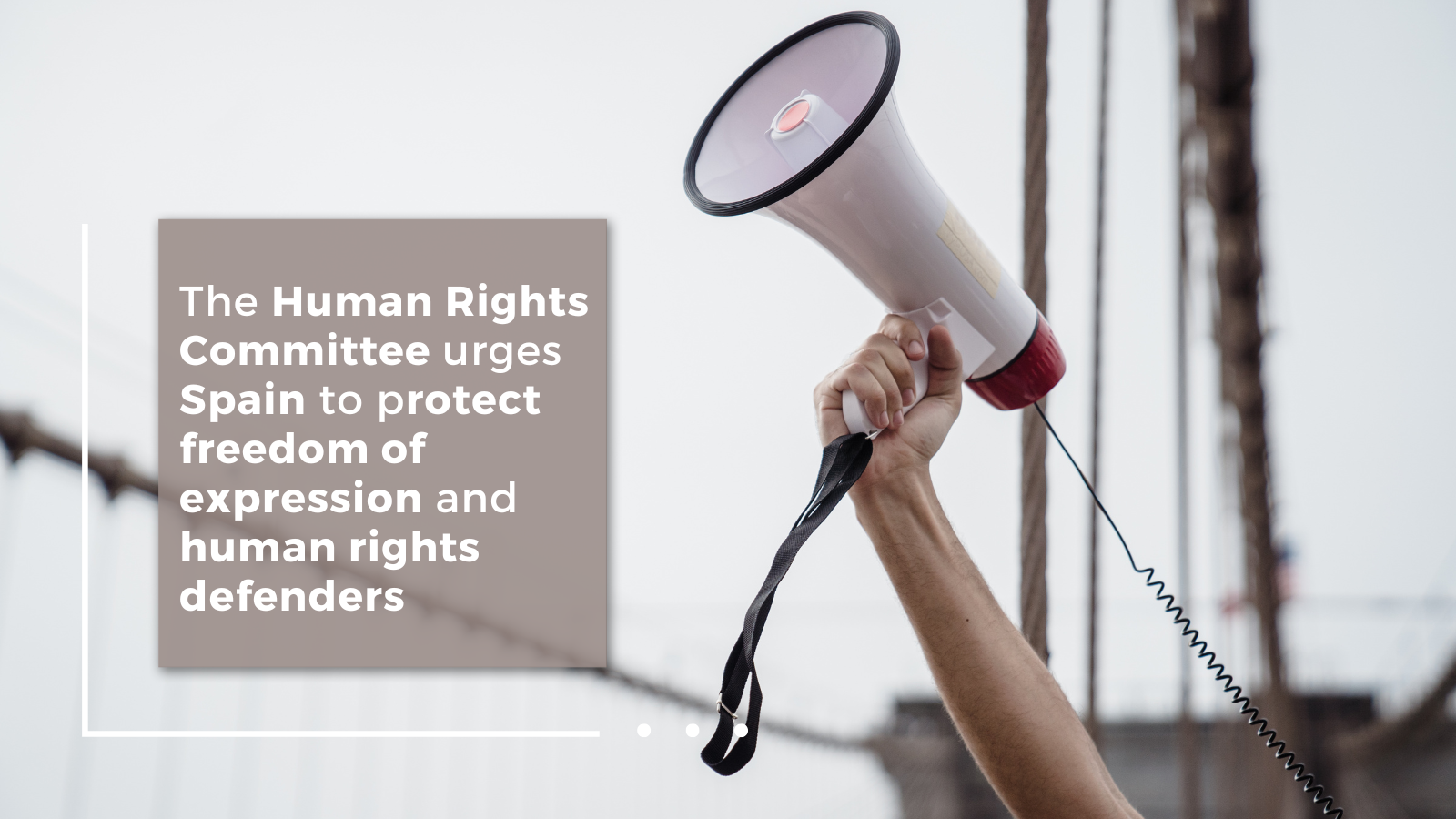
The Human Rights Committee urges Spain to protect freedom of expression and human rights defenders
In July, the Human Rights Committee of the United Nations adopted the seventh periodic report on Spain, in which it highlighted key recommendations to strengthen the protection of fundamental rights, especially those related to freedom of expression, peaceful assembly, and association, as well as the protection of human rights defenders.
The Committee expressed deep concern over allegations of surveillance of human rights defenders, activists, and politicians, allegedly carried out by the police and intelligence services. Between 2017 and 2020, it was reported that at least 65 Catalan public figures were subjected to monitoring through technologies such as the Pegasus and Candiru programs, allegedly linked to the National Intelligence Center (CNI).
The Committee laments the absence of a rigorous official investigation and the inaction of the Attorney General in judicial proceedings related to these events. It also expresses concern over the recognized practice of using “infiltrated intelligence agents” in social groups outside the criminal framework, backed by the Official Secrets Act of 1968, without legal guarantees or judicial oversight.
To guarantee the full and safe exercise of the rights to freedom of expression and peaceful assembly, the Committee urges Spain to:
- Take all necessary measures so that politicians, journalists, human rights defenders, and other members of civil society can carry out their work without fear of reprisals.
- Review the Official Secrets Act and ensure that all forms of surveillance respect the right to privacy under Article 17 of the International Covenant on Civil and Political Rights.
- Guarantee that surveillance, including digital surveillance and the use of infiltrated agents, strictly complies with the principles of legality, necessity, proportionality, and includes effective mechanisms for accountability.
- Thoroughly investigate all allegations of illegal surveillance and ensure effective remedies for victims.
The Committee also warns of structural challenges in the implementation of the Transparency Law, which partially excludes the judicial and legislative branches, lacks effective sanctions, and has a low number of requests. It further expresses concern about the lack of measures to decriminalize slander and libel offenses, and about the possible misuse of criminal and administrative rules (such as Article 578 of the Penal Code and the Organic Law on Citizen Security) to restrict fundamental rights.
In this regard, it recommends:
- Considering the decriminalization of slander and libel, limiting criminal intervention to serious cases.
- Strengthening the legal framework for access to public information, effectively applying it to all branches of government and establishing sanctioning mechanisms.
- Ensuring that laws and regulations are not used to improperly limit freedom of expression and peaceful assembly.
- Reviewing the Organic Law on Citizen Security and future reforms in consultation with involved stakeholders to ensure full compliance with international standards.
The Committee reminds that any restriction on the rights to freedom of expression and assembly must strictly comply with the requirements of legality, necessity, and proportionality, guaranteeing a legal framework that protects pluralism and democratic participation.
From FIBGAR, we welcome that the United Nations Human Rights Committee recognizes the importance of strengthening the protection of freedom of expression and the rights of those who defend human rights in Spain. We consider it essential that the State urgently adopts these recommendations to guarantee a safe environment free of illegal surveillance that allows active and plural participation in democratic life.



